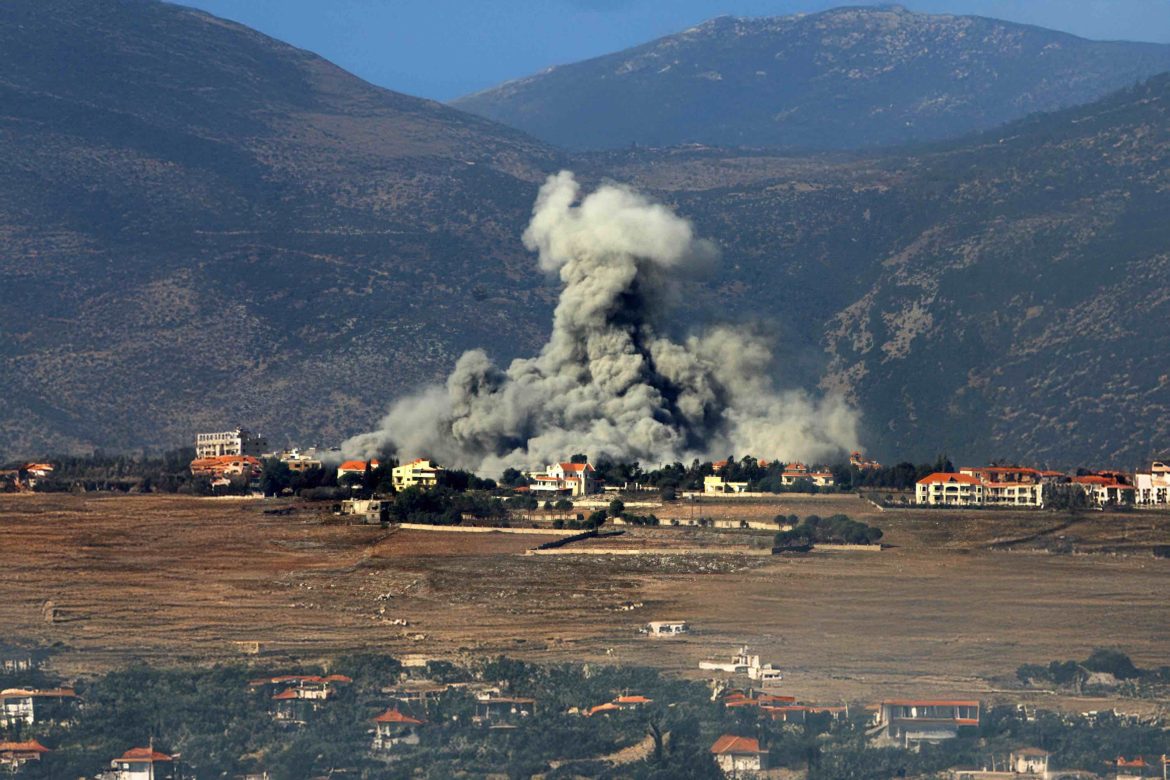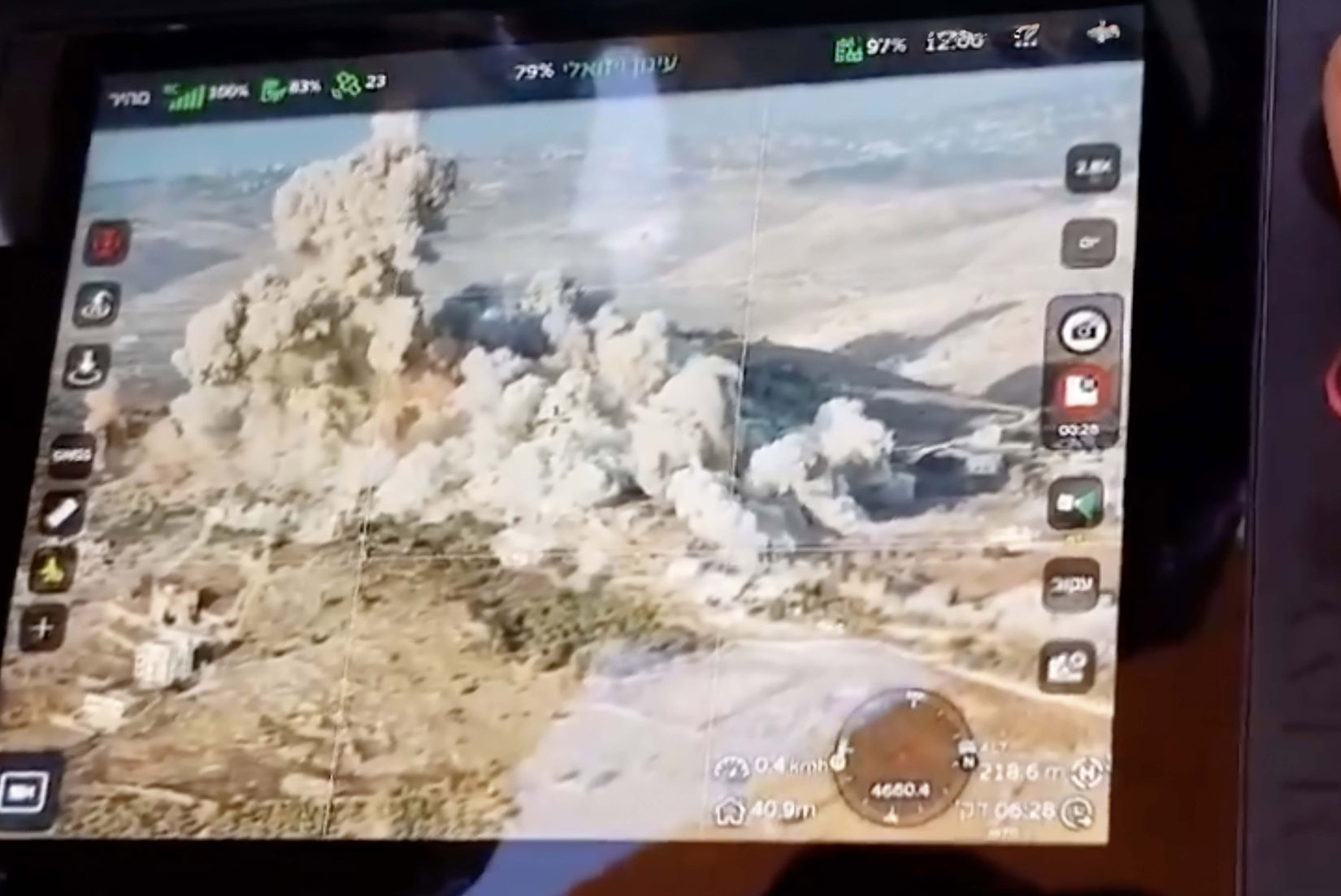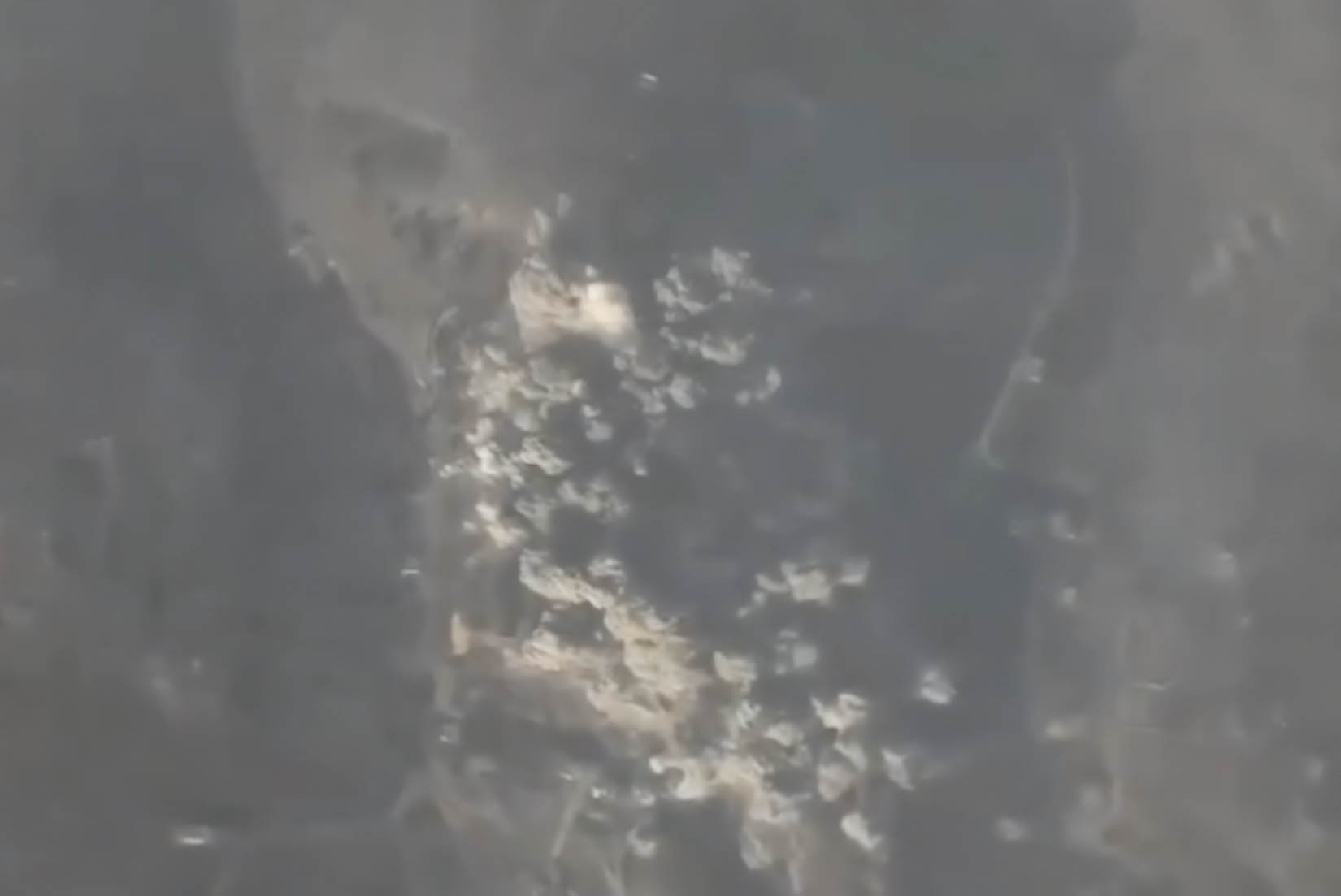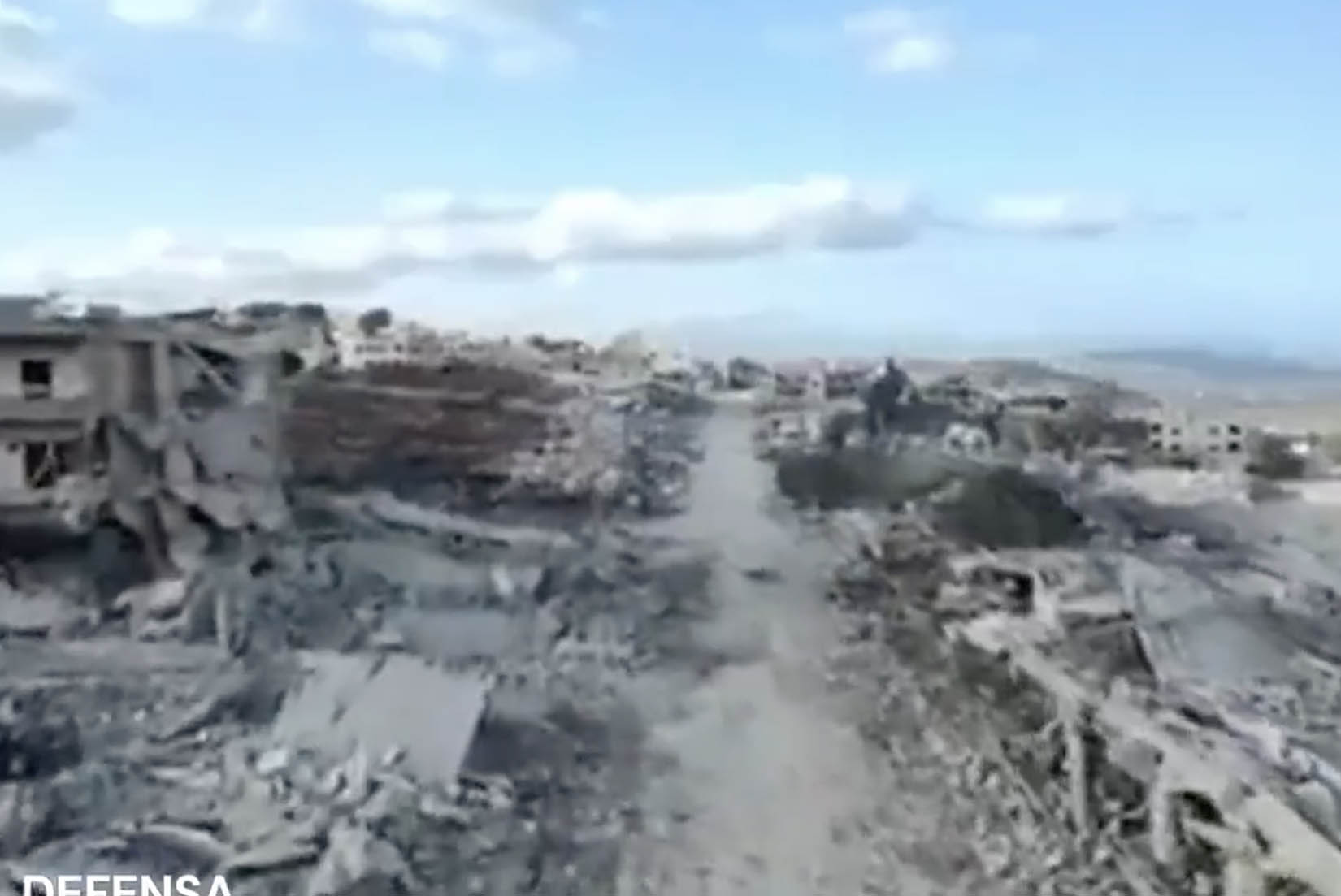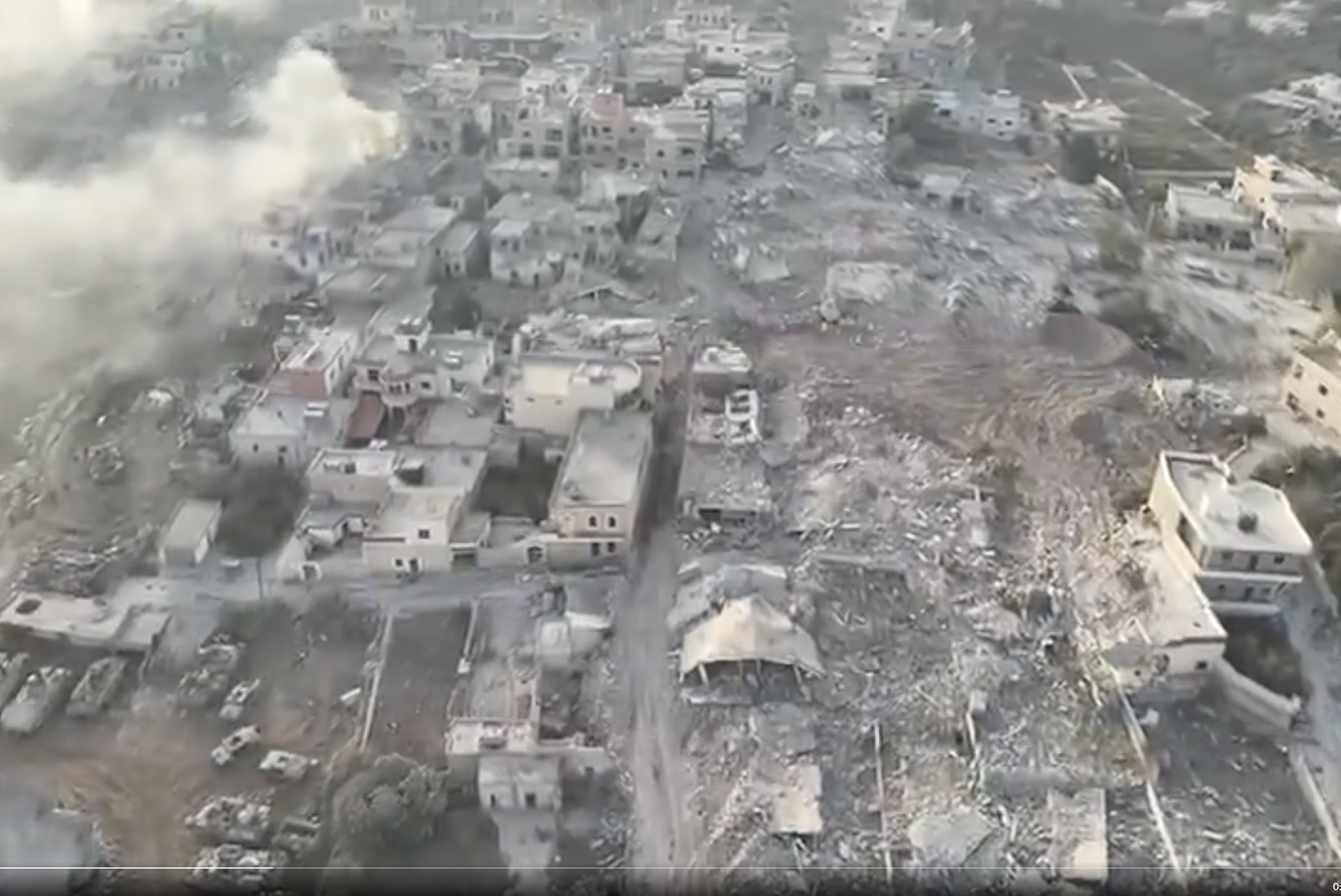Briefing: Israel’s war crimes rampage defies foundational principle of distinction in Gaza and now in Lebanon
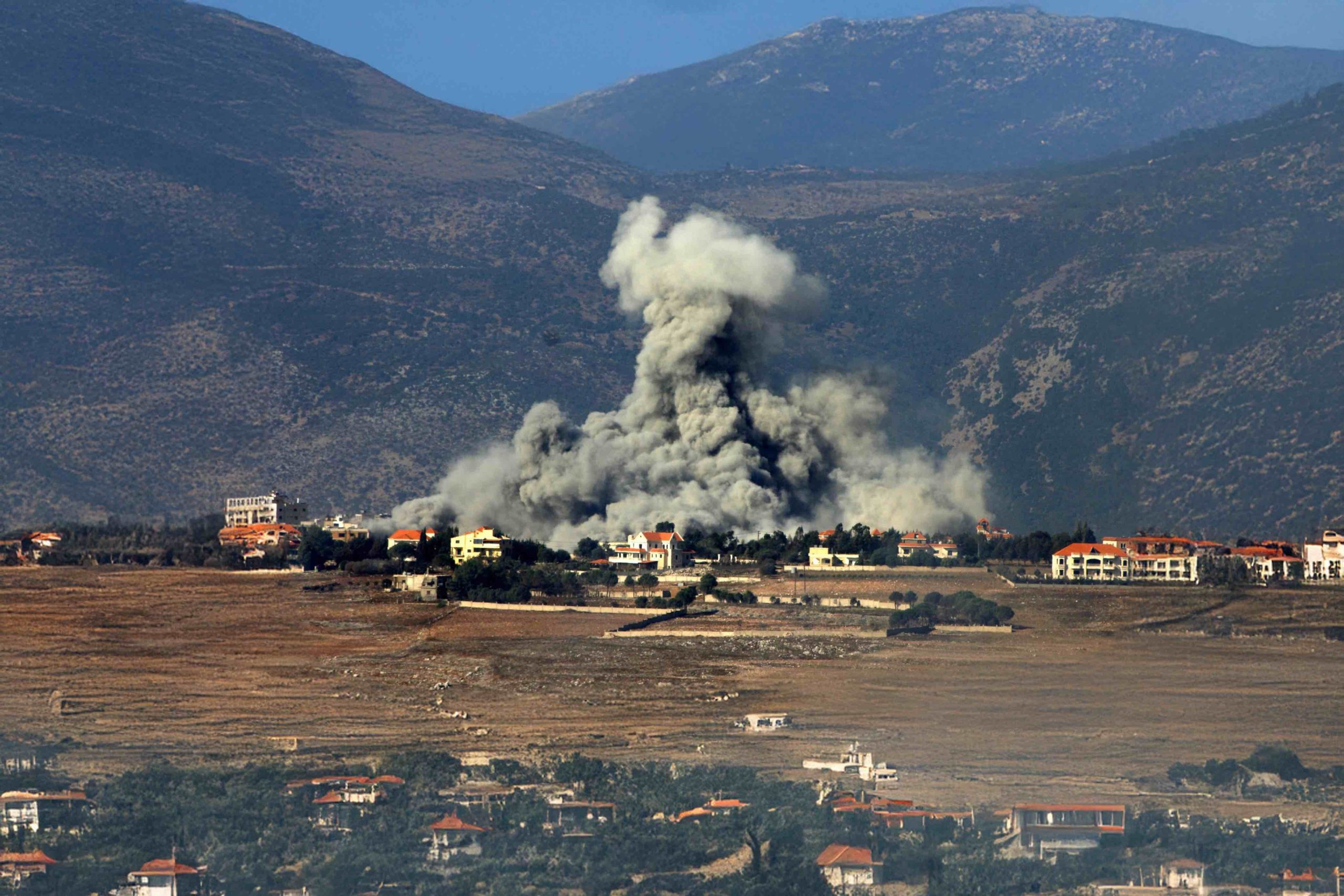
05/11/2024
In tandem with its now over yearlong genocidal campaign in Gaza, Israel intensified its aerial bombardment across Lebanon in September 2024 and launched a ground invasion into southern Lebanon on 1 October. While claiming its war is against Hezbollah, Israel indiscriminately targets residential buildings, hospitals, ambulances and medical personnel daily across Lebanon, decimating entire towns near the Israeli-Lebanon border. By disregarding the laws of war and blurring the distinction between civilians and combatants, Israel is shredding international law, largely without any accountability from the international community.
The Cairo Institute for Human Rights Studies (CIHRS) finds that Israel has alarmingly broadened the definition of a legitimate military target. Political and military officials have referred to the military target as the ‘Shiite population’ and claimed a village in its ‘entirety’ constitutes a ‘military base’. This discourse is reflected on the ground where satellite imagery shows Israel has recurrently mass destroyed towns in Southern Lebanon, obliterating homes, markets, bakeries and religious sites. Israel has repeatedly attacked the health sector, journalists and financial institutions without providing evidence to support its claims that these sites contribute to Hezbollah’s military action, or that their destruction offers Israel a definite military advantage. By 25 October 2024, Israel had killed 153 medics and injured 272 in at least 256 attacks on the medical sector, as well as killed 12 journalists covering the conflict. This clearly indicates that Israel is wilfully and knowingly targeting civilians and civilian infrastructure.
We call on the international community, especially the United States and Germany, to suspend all arms supplies to Israel. States that continue to support Israel are complicit in these atrocities and crimes. Sending humanitarian aid to the victims of the war while continuing to provide Israel with the arms used to carry out violations is making a mockery of international law. To safeguard the lives of Palestinian, Lebanese and Israeli civilians, an immediate ceasefire is needed in Lebanon and Gaza, allowing for effective diplomatic negotiations to prevent the resurgence of this conflict.
Israel’s continued indiscriminate attacks on Gaza and Lebanon, without any accountability from the international community, are causing significant civilian casualties and represent a disturbing and dangerous shift into lawlessness. The fundamental principles of international humanitarian law, notably the principle of distinction, are blatantly disregarded, leading to the normalisation of war crimes
Israel’s attacks have also extended to UNIFIL peacekeepers, repeatedly targeting their posts and damaging their equipment. In October 2024 alone, six peacekeepers were injured due to these attacks, and on 13 October, Israeli troops 'forcibly entered' a UNIFIL position in Ramyeh with two tanks and fired smoke rounds near peacekeepers causing skin irritation and gastrointestinal issues in 15 personnel, despite them wearing protective masks.
Israel heavily relies on imported aircraft, guided bombs and missiles and while several countries have recently suspended transfers of arms to Israel – including France, Italy, Spain, Ireland and the Netherlands – its key suppliers have not, despite repeated calls by humanitarian and rights organisations. Last month, the United States, the largest arms supplier to Israel, announced that it had approved $20 billion in weapon sales to Israel and that it would deploy a missile defence system to Israel. Since the start of the war on Gaza in October 2023, the US has enacted legislation providing at least $12.5 billion in military aid to Israel. Germany, Israel’s second largest arms supplier, has authorised over $100 million in military exports in the last three months alone. In September 2024, the German government’s spokesperson denied any current or potential plans to suspend arms supplies with Israel.
Israel’s indiscriminate attacks on Lebanon are a serious violation of the fundamental principle of distinction and constitute war crimes under international law.
The fundamental principle of distinction
International humanitarian law imposes several restrictions on any attack in armed conflict, the first of which is the principle of distinction which requires that any attack must be directed at a legitimate military target, otherwise the attack is automatically unlawful. Codified in Protocol I of the Geneva Conventions and uncontroversially recognized as customary international law, this principle requires parties to an armed conflict to distinguish between civilians and combatants, as well as between civilian objects and military objectives, as only combatants and military objectives may be attacked.
For an object to be considered a ‘legitimate target’, it must satisfy two conjunctive elements at the time of the attack:
First:
Second:
Indirect contributions that may simply contribute to the overall war effort are inadequate to rendering a target legitimate, as the target must offer an effective and definitive military advantage in the circumstances at the time of the attack. Without the principle of distinction, any and every object could be deemed a legitimate military target based on potential future developments.
Since September 2024, Israel has demonstrably stretched the definition of military objects in its attacks in Lebanon while offering no or insufficient evidence of how these objects contribute to Hezbollah’s military action and how the attacks provide Israel a definite military advantage.
Military discourse
Israeli Prime Minister, Benjamin Netanyahu, in a statement ‘to the Lebanese people’, said ‘You have an opportunity to save Lebanon before it falls into the abyss of a long war that will lead to destruction and suffering like we see in Gaza’, in an apparent threat to the Lebanese people: either confront Hezbollah or await a similar fate to Gaza. Key Israeli officials have recurrently made statements reflecting an expanded definition of ‘military objects’.
Israel’s army spokesperson, Daniel Hagari, stated that ‘Hezbollah turned Lebanese villages next to Israeli villages into military bases, all ready for an attack on Israel’, seemingly claiming entire villages are a military target and legitimising their mass destruction – a violation of the principle of distinction.
Israel's Diaspora Affairs Minister, Amichai Chikli, accused Lebanon of not fulfilling the definition of a state, and argued that the Israeli military should establish ‘buffer zones’ inside Lebanon stretching ‘a few kilometres, where the Shiite population won’t remain’ and ‘to repel the enemy Shiite population’. In this genocidal statement, Chikli seems to have dangerously broadened the military target of this operation to include the entirety of the Shiite population while implying an intention to acquire Lebanese territory by force.
This widened definition of military objects was indicated in other reports prior to this conflict. The Meir Amit Intelligence and Terrorism Information Center, which has strong ties with Israel’s intelligence agencies,[1]stated that certain civilian infrastructure in Southern Lebanon ‘support Hezbollah’s extensive military infrastructure and create a large pool of recruits for it’. Despite its interlinkage with Israeli intelligence agencies, this institute is not a government entity. Nonetheless, its reasoning is reflected in Israel’s actions on the ground in Lebanon.
The Meir Amit Institute lists schools, healthcare, gas stations, financial, cultural and scouting institutions, many of which have already been targeted in this war and concludes that they ‘contribute to the strength of the Resistance Society and assist Hezbollah in gaining the local population’s support’. These reports categorise entire communities as a legitimate military target, reasoning that they provide ‘local support’ to Hezbollah, without any evidence on how they effectively support Hezbollah’s military action. This reasoning not only violates international humanitarian law by relying on an ill-defined legitimate target but by also collectively punishing entire communities.
Despite claiming its war is on Hezbollah, Israel has targeted areas far from Hezbollah control on multiple occasions, killing several civilians. In one instance, Israel struck a residential building in a Christian-majority town in Northern Lebanon which had been rented out to a displaced family, killing 23 people, including 12 women and two children.
It is important to note that even when an object is a legitimate military target, core rules on proportionality and the means and methods of weapons used must still be respected.
Mass destruction of towns
The destruction of a town in almost its entirety, including residential homes, markets, bakeries, religious sites is a blatant violation of the principle of distinction. The condition of legitimate targeting effectively contributing to military advantage through its location – if not its use, purpose or nature – indicates that a ‘specific’ area of land is targeted, and not an entire town or city. The International Criminal Tribunal for the Former Yugoslavia (ICTY) found that the principle of distinction is violated when entire areas are considered as military zones in which any objective can be targeted.
Several videos as well as satellite imagery show that multiple towns have been nearly entirely destroyed, including Mhaibib, Blita, Ayta ash Shab, Kfar Kila, Yaroun, Khiyam and Ramyeh.
On 16 October, the Israeli military claimed that its soldiers had ‘dismantled’ a tunnel network in Kfar Kila used by Hezbollah, and that this network ‘ran through the heart of the village’. According to journalist Christiaan Triebert’s analysis of satellite imagery, at least 152 buildings were levelled in Blida and more than 284 in Kfar Kila with at least the entire eastern part of the village completely flattened. Media reported the mass destruction of residential homes and farmed land and a video shared by the military correspondent of Israeli state-owned Channel 11 showed parts of the mass destruction.
Satellite imagery shows the mass destruction of Mhaibib due to Israel’s attacks. This village, largely residential and agricultural, was almost entirely flattened, and a 2000 year-old religious shrine was destroyed. A video recorded shows Israeli forces detonating the town.
According to satellite imagery analysis conducted by Reuters and L’Orient le Jour, Kfar Kila’s roads of houses and green vegetation have been turned into a ‘string of white splotches indicating the houses had been pulverised’. A drone video obtained by CNN also showed the mass destruction of Yaroun where entire areas of the town can be seen destroyed or flattened.
Municipal area
On 16 October, Israel hit the Nabatieh municipality building in Southern Lebanon with a series of airstrikes, killing at least 16 people and injuring 52, including the mayor and members of the local Disaster Risk Reduction Unit who were gathering at the municipality for a relief management meeting. Israel claimed to have attacked ‘Hezbollah targets’ without providing evidence to back their claims. The mayor, Ahmad Kahil, had been identified by the Meir Amit Institute, as ‘probably a Hezbollah activist’ and the municipality as an institution ‘helping’ Hezbollah ‘acquire influence on the ground’ and ‘gain funding for its civilian activity’.
Despite these claims, a municipality is not a legitimate target, even if it is headed by an alleged ‘Hezbollah activist’. The municipality by its nature is not a military object, and Israel has failed to present evidence of the municipality ‘effectively contributing’ to Hezbollah’s military action by its use or location.
Healthcare
Between 8 October 2023 and 25 October 2024, Israel conducted ‘intentional and direct’ attacks on 55 hospitals and 201 emergency medical teams, killing 153 medics and injuring 272 others, and forcibly closing 58 health centres, as documented by the Lebanese Ministry of Health. The Islamic Health Organization (IHO) announced that as of 11 October 2024, over 85 of its staff had been killed and 150 wounded.
The IHO is licensed by the Lebanese government, operates in coordination with the Ministry of Health, and has agreements with municipalities to run medical centres and emergency services. Israel’s Meir Amit Institute had claimed that the IHO is affiliated with Hezbollah by way of ‘providing health services to Hezbollah operatives and the Shiite population in general as a means for gaining influence and creating a Shiite mini-state within Lebanon’. However, providing health services to part of the general population cannot be construed as contributing to Hezbollah’s military operations, even if some of those who receive this health care happen to be supporters of the Hezbollah political movement. Alleged affiliation with this movement does not affect the protected status of medical centres or their personnel.
On 3 October 2024, the IDF struck – without warning – an IHO medical centre in central Beirut, and later claimed it targeted ‘Hezbollah assets’. Nine medical personnel died in the attack and the hospital went out of service. It is highly unlikely that these medical personnel could constitute legitimate military targets under any reasonable definition of the requirements of international humanitarian law. The following day, Israel struck two hospitals in Southern Lebanon, the IHO-run Salah Ghandour Hospital in Bint Jbeil and the Marjayoun government hospital, wounding several doctors and hospital staff, and causing both hospitals to suspend operations.
That same day, Mays al Jabal hospital, located near the Israel-Lebanon border, was forced to close due to a lack of supplies. In a media interview, the director of the hospital’s medical services stated to the media that they had run out of medical supplies, diesel, electricity and even water as UNIFIL was no longer able to deliver water to the hospital due to Israel’s intensified attacks.
Israel’s attacks on healthcare in Lebanon are not a recent occurrence. Only one month into the war, in November 2023, WHO announced that Israel had attacked one hospital, one primary health care centre and two ambulances.
Under international humanitarian law, military or civilian medical units organised for medical purposes must be respected and protected from attacks. They only lose protection if they are used outside their humanitarian function, to commit acts ‘harmful to the enemy’. Even if this protection status is lost, a warning still has to be issued prior to an attack, whenever appropriate, within a reasonable time-limit.
A similar protection is afforded to medical personnel exclusively assigned to medical duties and to civilian or military means of transportation exclusively used for medical transport, which may not be attacked nor have their passage arbitrarily obstructed. They lose this protection in a similar manner to medical units – if they carry out acts hostile to the ‘enemy’ and outside of their humanitarian function. Caring for the wounded and sick military personnel is not considered a hostile act, neither the presence of military personnel, or being escorted by them, nor the possession of small arms and ammunition taken from their patients.
Financial institutions: Qard al Hassan
On 20 October 2024, Israel conducted an operation targeting offices for Qard al Hassan, a Lebanese non-profit charity institution affiliated with Hezbollah. Israel stated that the objective was to ‘cripple Hezbollah’s financial network as a larger part of destroying its infrastructure’. Although Israel did not allege that Qard al Hassan is directly involved in hostilities, it claimed the institution is used by Hezbollah to pay its fighters’ salaries and support its operational capabilities. Many Lebanese citizens rely heavily on this institution, especially due to the ongoing banking crisis in Lebanon, as it remains one of the few institutions offering interest-free loans to families.
While Israel did not provide any evidence to substantiate its claims, even if true, Qard al Hasan is not part of Hezbollah’s military infrastructure, nor has Israel demonstrated how its destruction would yield any effective military advantage. Qard al Hasan’s affiliation with Hezbollah alone does not justify targeting its facilities, as this connection does not equate to a direct contribution to military action, particularly when the institution is primarily used by the civilian population.
The UN Special Rapporteur on the promotion and protection of human rights and fundamental freedoms while countering terrorism has stated that ‘mere economic activities of an adversary do not effectively contribute to military action’ calling the attacks on Qard al Hasan an ‘obliteration of the distinction between civilian objectives and military objectives’.
Journalists
Since October 2023, Israel has repeatedly struck several media offices in Lebanon as well as journalistscovering the hostilities, including those from Reuters, Agence-France Presse (AFP), Al Jazeera, Al Mayadeen, Al Manar and Miraya International Network, killing 12 journalists.
Most recently, on 25 October 2024, Israel struck a compound housing journalists, at three in the morning and without warning, in a safe area that had been used as a base for journalists covering the developments on the Israel-Lebanon borders. The strike killed three journalists and injured three others. 18 journalists from various national and international media outlets were residing in the compound and their cars – clearly marked with ‘press’ – were parked in the courtyard. The Israeli army said it targeted ‘Hezbollah militant infrastructure’ and later stated the strike is under review.
All of these attacks targeted journalists while they were carrying out their duties and while clearly identifying themselves as press – a clear violation of the principle of distinction. Israel has failed to provide evidence demonstrating that the journalists were legitimate military targets.
CIHRS urges Israel to cease its extensive violations of International Humanitarian Law, and calls on states to end support for Israel’s military activities in Lebanon and elsewhere by imposing arms embargoes, and to support calls for independent investigations into violations by all parties of the conflict to ensure accountability.
[1] The Meir Amit Intelligence and Terrorism Information Center (ITIC) was established as part of a government institution, the Israel Intelligence Heritage and Commemoration Center (IICC). See: https://www.terrorism-info.org.il/en/about/
Created in response to public pressure on the Israeli intelligence community for more ‘overarching transparency’, IICC members are veterans from all branches of Israel's intelligence community including Mossad, Israel security agency and Israel defenseintelligence. The founder is the previous chief of Israeli defense intelligence and Mossad. The current heads of each of these intelligence agencies always serve as honorary advisory members of IICC's board. The current director is a retired IDF colonel in the intelligence department. See: https://www.iicc.org.il/?module=category&item_id=112
Share this Post

